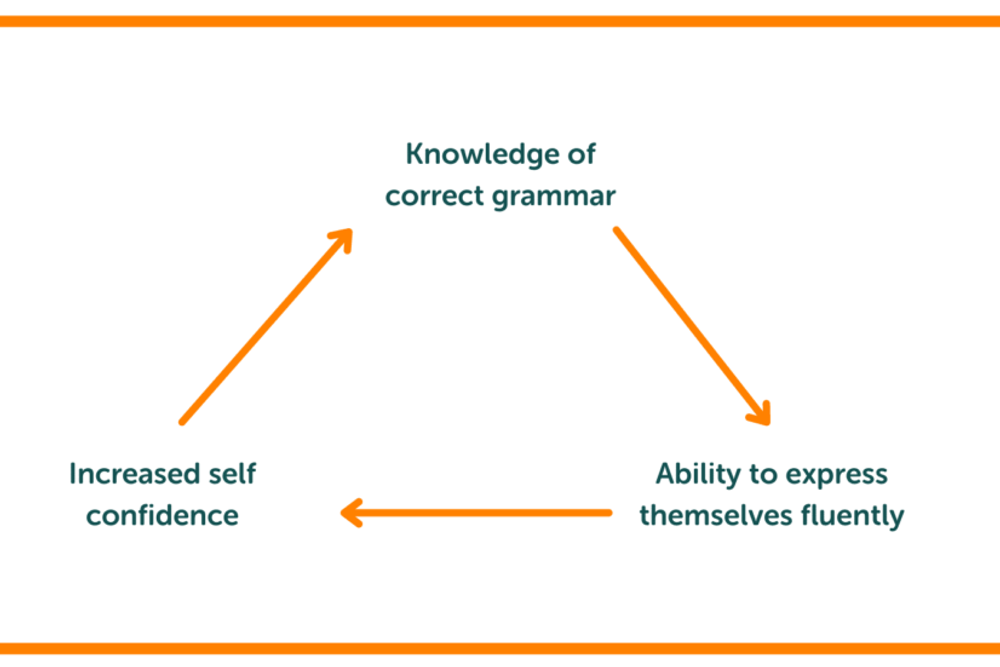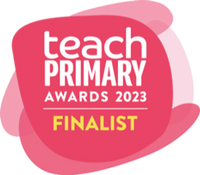5 ways a mastery of grammar contributes to high attainment
Explicit teaching of grammar enhances learners’ ability to think and communicate clearly. In turn, this leads both to academic attainment and greater self-confidence. Here, we look in more detail at how grammar teaching has these benefits and more.
Many teachers and parents were educated at a time when grammar was taught less explicitly than the current curriculum demands. The parent furore about fronted adverbials highlighted the consternation often felt about the purpose and benefits of explicit grammar teaching.
However, research shows that explicitly teaching grammar so that students have a mastery of it – i.e. they have instant, automated recall and don’t need to think consciously about it – contributes to literacy improvement.
As renowned literacy teaching expert David Didau observes in If writing is magic, grammar is alchemy, “If children do not know the basics – and know them fluently and automatically – then they will struggle to learn not only the finer points of expert writing, but also will be much less likely to intuit that grammar is less a set of rules and more a body of knowledge concerned with meaning. If you ‘just know’ parts of speech, subject-verb agreement, clauses etc. then you can not only think in far greater depth about why writers make choices, a world of choice and possibility opens up before you too.”
Here, we look at some of the key benefits of mastery in grammar, both at an individual and class level.
1. Deeper reading skills
When learners have mastered the metalanguage of grammar – terms such as noun, verb, preposition and conjunction – they can better appreciate different language choices and gain a deeper understanding of texts, from their structure to the thoughts and feelings expressed in them. As they access more complex and sophisticated ideas, learners’ analytical skills and critical thinking are further enhanced.
2. Improved writing ability
Knowing how to decode a sentence into its constituent parts – from recognising simple and compound sentences to understanding clauses and knowing how to use punctuation such as semicolons, learners gain a sound understanding of different language choices. Combined with improved reading ability, this helps students craft more sophisticated writing.
3. Enhanced creativity
It may seem paradoxical, but having a mastery of the framework of grammar enables learners to be more creative too. When learners know the rules, they can play around with them in their own creative writing: as they devote attention to exploring a deeper understanding of ideas without having to deliberately consider grammar, it frees them up to express themselves in original ways.
4. Greater confidence
A learner's ability to use accurate grammar enables them to express themselves fluently, leading to increased self-confidence. In contrast, those with poorer skills may have to focus on their grammar, taking their focus away from what they’re trying to communicate. They may also knowingly or unknowingly make errors that detract from what they aim to convey, and may even unwittingly distort the meaning of what they are trying to say (as in the famous example ‘let’s eat Grandma’ compared to ‘let’s eat, Grandma’) – thereby contributing to a further loss of confidence.
5. Increased whole-class attainment
When an entire cohort has acquired a mastery of grammatical metalanguage and frameworks, teaching can become more efficient – and satisfying for teacher and learner alike. When teachers don’t need to spend time explaining a new grammatical concept to learners, they can dive straight into a text itself, enabling the cohort to move more quickly onto complex and challenging analysis.

What is Bedrock's grammar curriculum?
Designed by English teachers, Bedrock's grammar curriculum is a key part of our core curriculum. Learners explore both foundational and advanced grammar through engaging videos and interactive tasks.
These comprehensive and adaptive resources focus on improving students’ understanding of grammatical features and their ability to use them in their own writing. Students meet each new feature in the context of original fiction before learning about the new grammatical concepts through our library of engaging video content. They then complete activities that help them demonstrate understanding, practise identifying grammatical features and explain their effect: all important skills that are tested from Years 3-11.
Writing is equally important, so scaffolded writing activities encourage learners to put what they’ve learned into practice. A pre-test at the beginning and a post-test at the end of each topic monitor learning, meaning you can easily track progress.





